Posts in Category: Seasonal Pet Care
The Safe Side: How to Prevent Antifreeze Poisoning in Pets
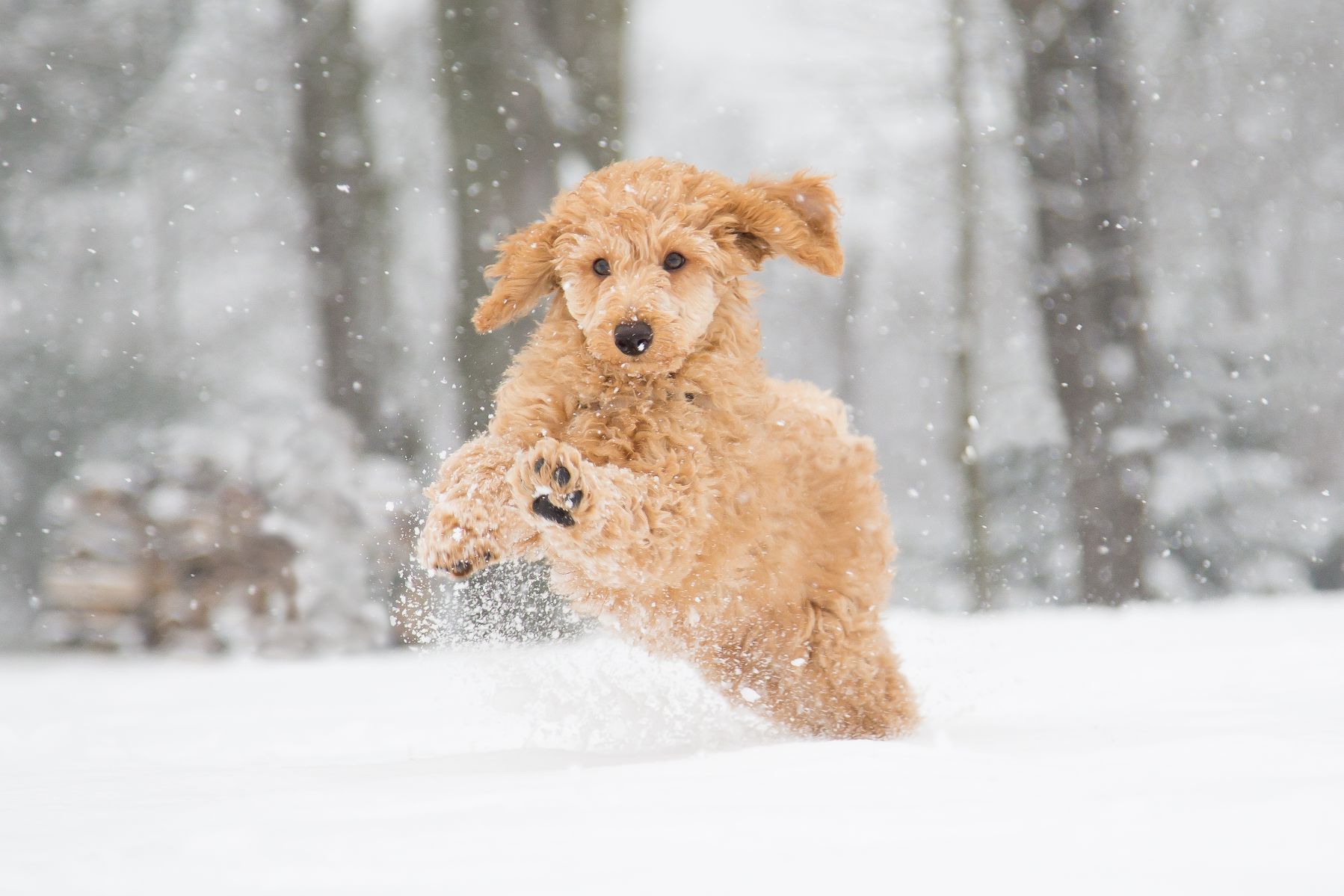
Each season brings an array of unique hazards. Winter increases a pet’s risk of hypothermia, aching, arthritic joints, and frozen paw pads. Unfortunately, antifreeze is also highly toxic to pets. What’s worse, the smell and taste of antifreeze doesn’t warn them that it’s unsafe. Antifreeze poisoning in pets is a very real threat this time of year, and prevention is key.
Continue…The Right Winter Gear for Pets Makes All the Difference
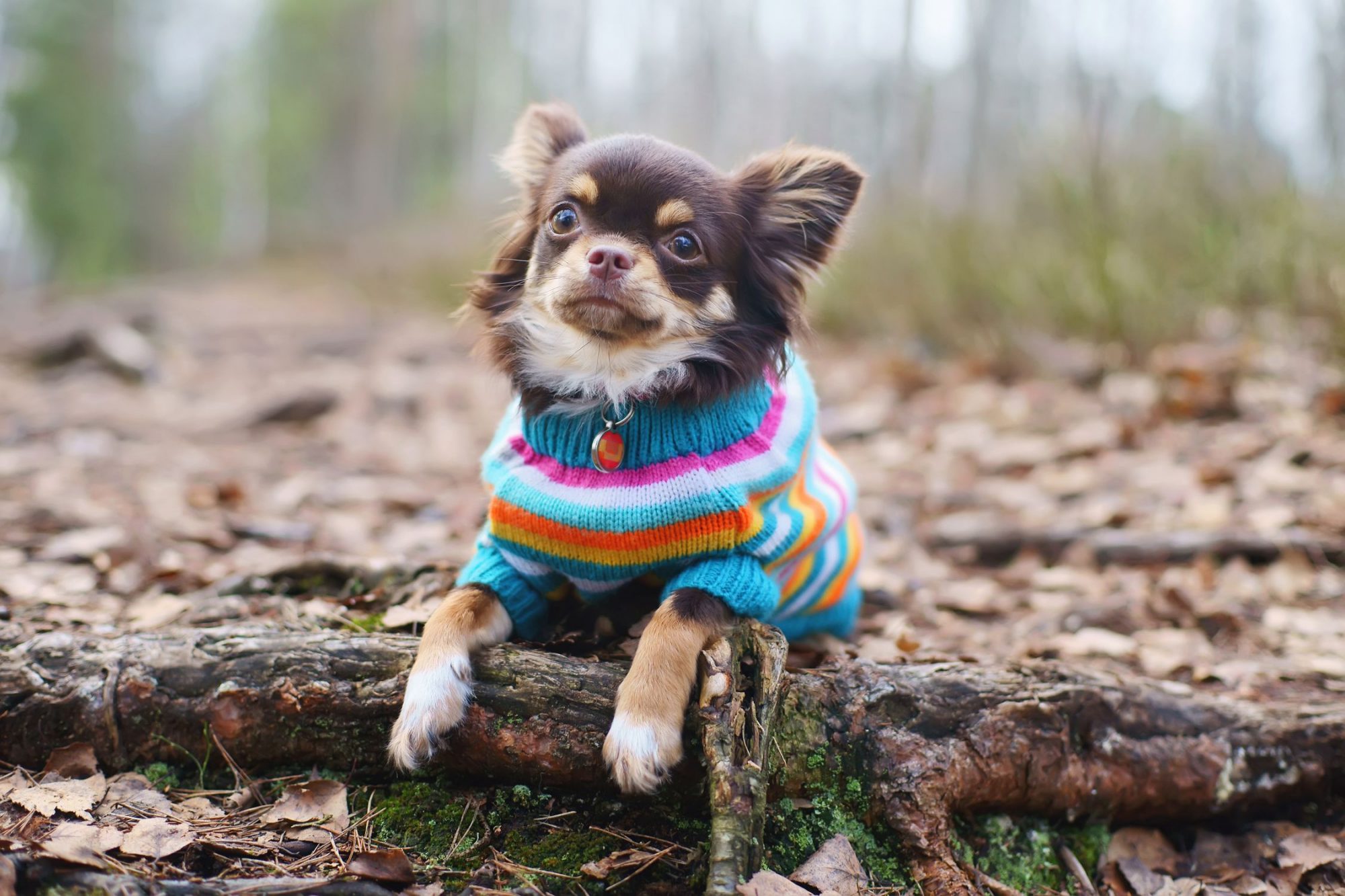
Between sweaters, vests, booties, and parkas, there’s simply no shortage of excellent winter gear for pet options out there. Now, your pet may have a different opinion on the subject, but once they feel the warmth and comfort, they’ll want to wear it all season long.
Aren’t They Born For It?
Continue…Allergy Testing for Dogs Saves More than Time and Money
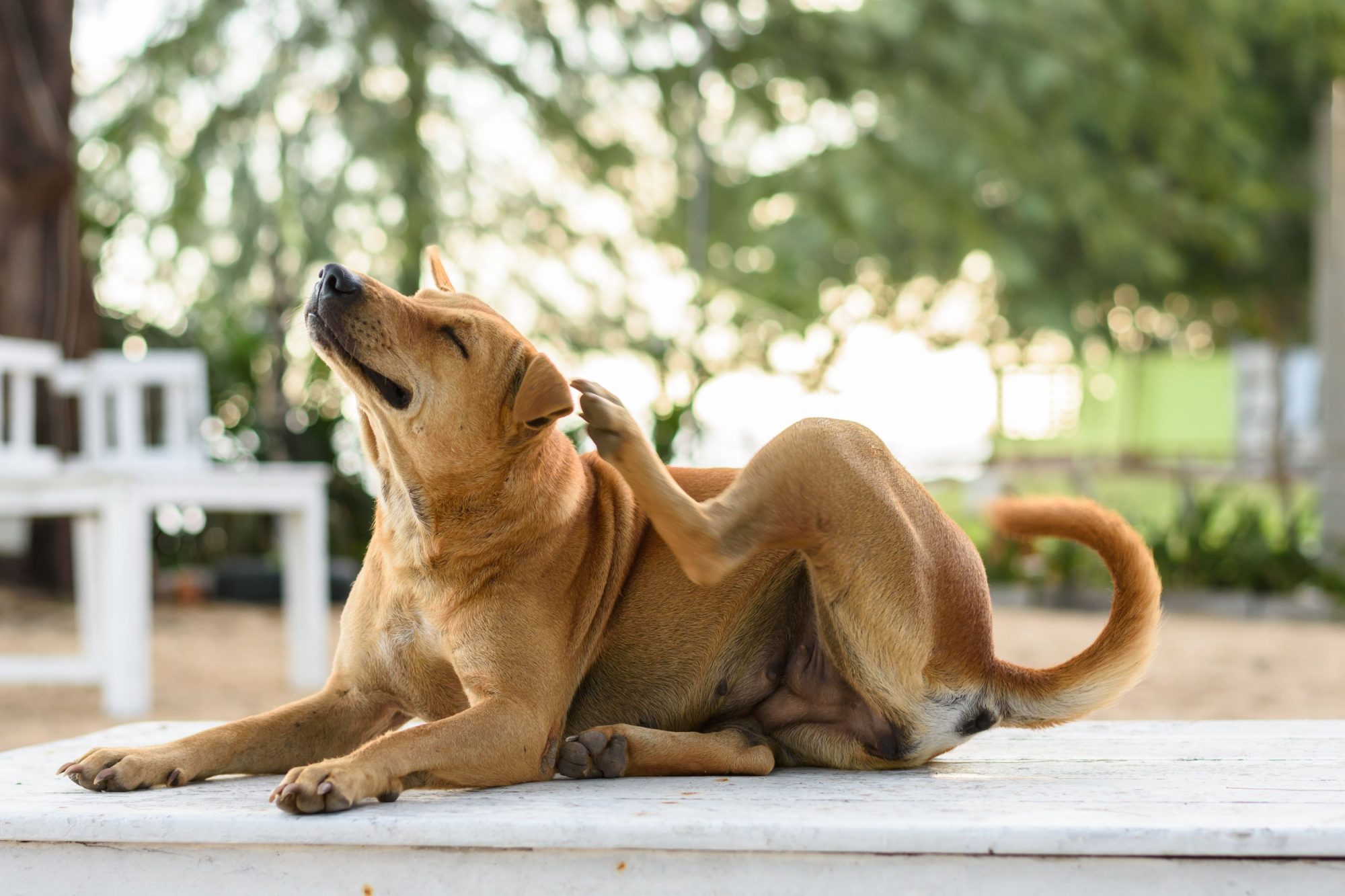
There’s nothing worse than being itchy, except perhaps being itchy and not knowing what’s causing dermatological distress. Atopic dermatitis, typically caused by inhaling certain allergens like dust, pollen, or mold, can be formally diagnosed with allergy testing. A major boon for itchy pets, allergy testing for dogs can lead to the development of an effective, long-lasting treatment plan.
Continue…How to Keep Your Pets Safe During the Holiday Season
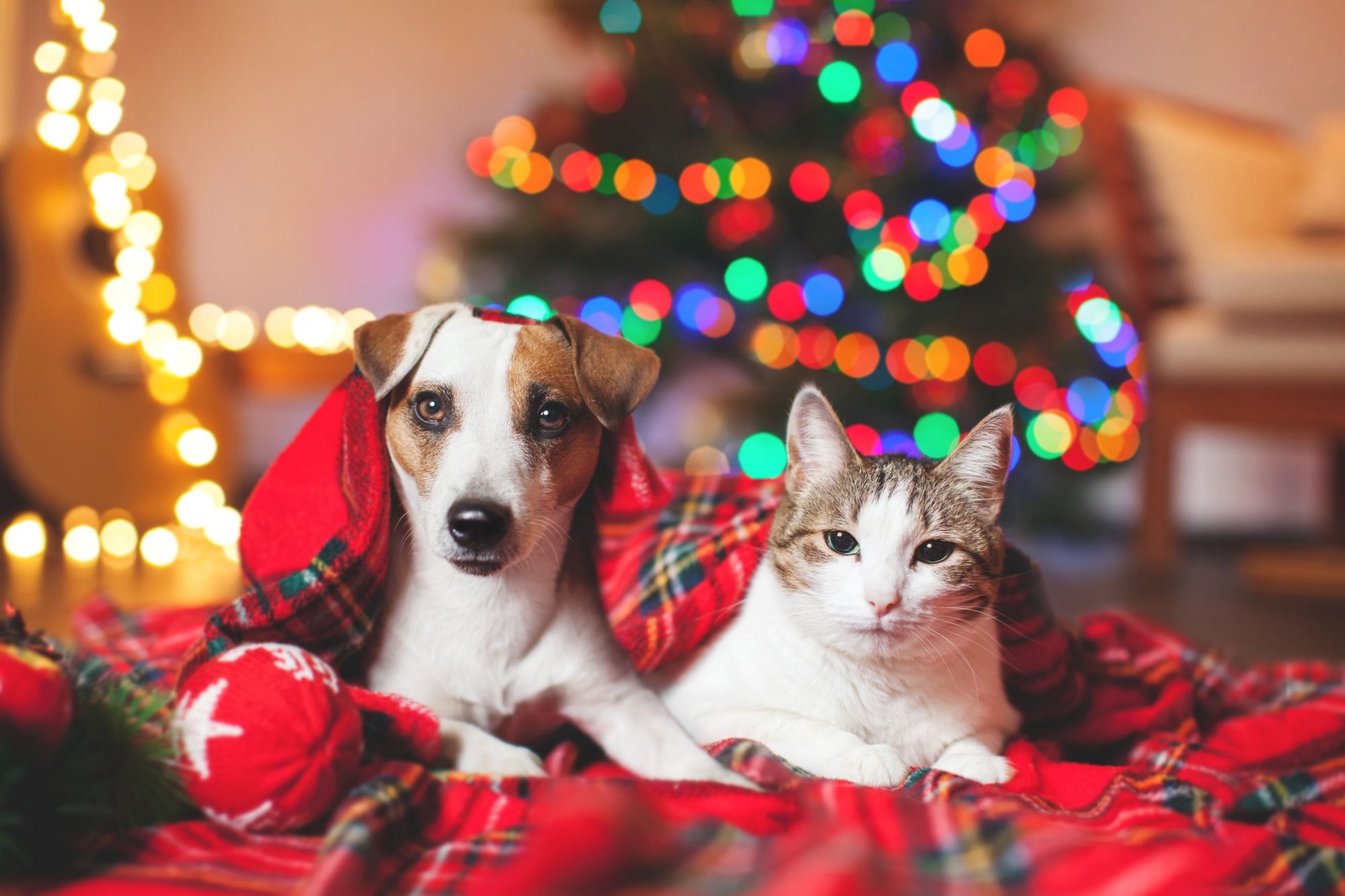
The holiday season is upon us! With the excitement of the season can come potential hazards to your beloved dog or cat. Dangers can lurk in baked treats, festive decorations, candles, and more. Make sure to celebrate the holiday season in a way that encourages pet safety with these tips from The Bluffs Pet Clinic:
Continue…Recommendations for Protecting Your Pets From Fleas & Ticks
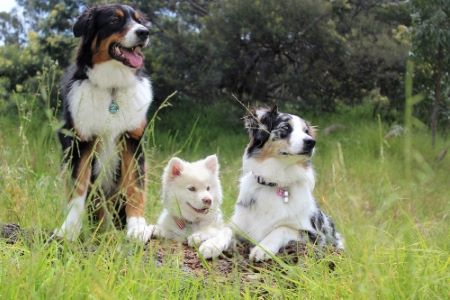
Spring has finally returned, but, unfortunately, that means that so have the fleas and ticks. As flea and tick treatments are always evolving, our own Dr. Darlene Cook, DVM, CVA wanted to share with you her current recommendations for flea and tick prevention for your pets. While we do recommend your pets be on monthly preventatives year-round, Doctor Cook also includes some recommendations for those who use spring through autumn prevention.
Continue…Winter Activities for Pets to Keep Them (and You) Moving
 The long months of winter can have most of us wanting to curl up on the couch. Add to that the busyness of the holidays, frequent travel, and inclement weather, and keeping up with your pet’s exercise needs can be a challenge.
The long months of winter can have most of us wanting to curl up on the couch. Add to that the busyness of the holidays, frequent travel, and inclement weather, and keeping up with your pet’s exercise needs can be a challenge.
Thankfully your friends at The Bluffs Pet Clinic have some fun, exciting, and easy winter activities for your pet that will have you both up and moving. Let’s take a look at some of our favorite winter activities for pets – and you, too! Continue…
How to Manage Seasonal Pet Allergies
 Just like humans, pets can suffer from seasonal allergies or allergies that persist throughout the year. Pet allergies usually manifest as itchy or inflamed skin, rather than sneezing and watery eyes that people are prone too.
Just like humans, pets can suffer from seasonal allergies or allergies that persist throughout the year. Pet allergies usually manifest as itchy or inflamed skin, rather than sneezing and watery eyes that people are prone too.
Seasonal pet allergies is one of the most common conditions we see in our veterinary practice. Symptoms can be intense and extremely uncomfortable for pets, and can affect their quality of life.
Allergies cannot be cured, but they can be effectively managed. With knowledge, patience and support from The Bluffs Pet Clinic, you’ll be on the right track to managing seasonal pet allergies in no time. Continue…
Your Guide To The Purrr-fect Holiday Gifts For Pets
 It’s hard to imagine a holiday season without at least one or two gifts for the four-legged friends in your life! Whether you completed your holiday shopping back in August or are still struggling to figure out what to buy, our ideas for holiday gifts for pets can round out your list.
It’s hard to imagine a holiday season without at least one or two gifts for the four-legged friends in your life! Whether you completed your holiday shopping back in August or are still struggling to figure out what to buy, our ideas for holiday gifts for pets can round out your list.
Wacky Gifts For Pets
One of the best parts of gift giving is coming up with creative ideas to surprise your loved ones. The pet care industry has capitalized on this concept and the amount of interesting, unique, useful, and pawsitively pawsome pet products on the market is simply dazzling. For instance:
- The Aikiou Interactive Dog Bowl makes any mealtime fun and interesting
- You’ve never enjoyed watching your cat sharpen their claws as much as you will with the Cat Scratch Turntable
- Give your pooch a window to the world (next door) with the Pet Peek fence window!
Stocking Stuffers
You can pack a lot of health, fun, and deliciousness into a pet’s stocking while still staying within your budget. Try these pet stocking stuffers:
- Pet toothbrush and toothpaste (also available at The Bluffs Pet Clinic).
- Homemade pet treats, made right at home with love.
- Felted cat toys or other small, fuzzy toys for your beloved kitty to play with.
- A rolled leather leash or other vet-approved leash for your furry friend.
Wardrobe Upgrade
Not every pet enjoys wearing clothes, but some accessories are designed to protect your pet against our Northern Minnesota winters and look super adorable, such as:
- A fleece or waterproof coat to keep your pet warm and dry on walks and outdoor excursions.
- Dog snow booties to protect those paws from snow, ice, and chemicals.
- A cute and cozy cable knit sweater for warm snuggles just about any time.
Wellness Abounds
Has your pet been in for a wellness exam lately? Are they up-to-date on vaccines and parasite preventives? Could your little guy or gal use a good bath and nail trim with a professional groomer? Wellness gifts such as these may not seem very interesting, but there’s simply no better gift you can give your pet than the gift of good health!
Giving Back
If your pet’s toy box doesn’t have room for more stuffed animals or squeaky bones, consider giving to animals in need this holiday season instead. Consider the following ideas for making your community a better place this holiday season (and all year long):
- Donate your time, energy, supplies, or money to a local animal shelter or rescue organization
- Have your pet spayed or neutered to ensure that you don’t contribute to the homeless pet population
- Adopt or foster a new pet
What’s under the tree for your furry friend this year? We’d love to hear about it during your pet’s next appointment. In the meantime, don’t hesitate to contact The Bluffs Pet Clinic with any concerns you may have regarding your pet.
Ready for Single Digits? Prepare with Our Winter Pet Safety Guide
 Animals are highly adaptable, but that doesn’t mean Chihuahuas can handle sub-zero temperatures or that huskies thrive in the desert. Each pet acclimates to environmental changes in different ways, but sometimes, they need our help to survive seasonal extremes. Without a proactive approach to winter pet safety, the animals we love may face deadly hazards.
Animals are highly adaptable, but that doesn’t mean Chihuahuas can handle sub-zero temperatures or that huskies thrive in the desert. Each pet acclimates to environmental changes in different ways, but sometimes, they need our help to survive seasonal extremes. Without a proactive approach to winter pet safety, the animals we love may face deadly hazards.
Mild to Wild
Pets adapt to seasonal shifts in temperature and humidity via their coats, which thicken during the fall. Although a great defense against the cold, wet, and windy weather, thicker coats do not replace the vital need for shelter.
Serious Risks
Exposed animals are at risk for hypothermia and frostbite. Because they react to cold through shivering and depressed breathing, indoor-outdoor pets must have access to weatherproof shelter, unfrozen water, and food to help replace spent calories.
Older and Younger
Pets in good physical health face better odds when it comes to winter pet safety. Puppies or kittens, as well as senior pets, are known to lose body heat more quickly because they have less insulating body fat and muscle mass and a weak shivering response. To compensate, many pet owners add more high-value nutrition during the winter months.
However, your best bet for protection is to simply keep these pets inside and comfortable. Keep them away from cold drafts, wet conditions, and make sure they’re warm at all times. Exposure to bitter cold can decrease a pet’s disease resistance, resulting in new or worsening cases of pneumonia or osteoarthritis.
Speaking of Their Coats…
While their coats are at peak thickness, don’t forget to brush them out. A clean, mat-free, fluffy coat offers superior protection from the elements. Plus, distributing the skin’s natural oils throughout the body can help ward off dry, itchy skin. Insulating sweaters, vests, and jackets are game changers when it comes to keeping up with daily outdoor exercise.
Other Elements of Winter Pet Safety
Depending on your pet’s species, breed, age, and lifestyle, the following winter pet safety tips may come in handy:
- Shovel out a specific spot for your dog to go to the bathroom during severe weather.
- Be aware of antifreeze risks. Clean up any leaks or spills immediately, and do not allow your pet to drink from puddles.
- Cleaning up your pet’s feet after being outside reduces the effects of salt, chemical deicers, ice, and snow pack. Be sure to trim the hairs between the paw pads to minimize ice balls. A pair of booties can make all the difference.
- Keep your dog on leash. Their sense of smell is impaired by snow, and they can get lost more easily. Microchip your pet and update your contact information if necessary.
- Do not leave your cat or dog inside your car during the winter.
- Bang on the hood of your car before turning the key. Cats are known to crawl up next to the engine block to stay warm.
- Portable heaters and fireplaces can present fire hazards. Supervision is always required.
Please contact us with additional questions or concerns about winter pet safety. Our veterinarians and staff members are always here for you and your pet. Stay warm!
The Weather is Frightful, So is the Food: Preventing a Pet Poisoning This Holiday Season
 The holidays are all about families celebrating together. Tables overflowing with savory, decadent food, champagne glasses clinking, and abundant greenery adorning every surface and walkway. All of this sounds lovely, but when you add your pet to the mix, your sparkling holiday scene could turn into a disaster rather quickly. While there’s definitely room for concern, pet poisoning around the holidays can be prevented when you learn to recognize the common culprits.
The holidays are all about families celebrating together. Tables overflowing with savory, decadent food, champagne glasses clinking, and abundant greenery adorning every surface and walkway. All of this sounds lovely, but when you add your pet to the mix, your sparkling holiday scene could turn into a disaster rather quickly. While there’s definitely room for concern, pet poisoning around the holidays can be prevented when you learn to recognize the common culprits.
Chocolate
From advent calendars to Hanukkah gelt, chocolate is ubiquitous during the holidays. It’s given as gifts, it’s a showpiece on the dessert buffet, and it even makes an appearance in cocktails.
Depending on the amount and type of chocolate consumed, theobromine is responsible for hyperactivity, vomiting, diarrhea, muscle tremors, seizures, or even heart attack in pets.
Keep all chocolate on surfaces your pet can’t reach and away from the floor. Remember, the darker the chocolate, the more dangerous it is. Know what to look for in a pet poisoning, and call us immediately if you suspect your pet has ingested any chocolate.
Pet Poisoning and the Dining Table
It might seem relatively easy to keep chocolate out of the house, off the menu, or away from the table, but many other ingredients can pose risks. Onions, garlic, xylitol-sweetened goodies, desserts with raisins, and alcohol can all result in a pet poisoning.
Fatty or rich foods can result in a painful turn of pancreatitis, leading to emergency treatment, medical support, and lab work.
Also, rising dough may seem appetizing to your pet, but yeasted, uncooked dough can create sizable complications in the GI tract.
Plants
Garlands on banisters, over doorways, or on the mantel are par for the season, but you may want to consider artificial greenery. Pine needles from garlands, wreaths, or the holiday tree can lead to serious GI problems or get stuck in your pet’s delicate paw pads.
In addition, poinsettias, mistletoe, and holly berries can result in a pet poisoning if ingested by a curious (or hungry) pet. Keep plants off the floors and out of your pet’s reach.
Unpredictable Natures
You may have done your due diligence when it comes to the prevention of a pet poisoning, but if you’re entertaining guests, all your hard work may quickly dissipate.
Please inform any visitors of your concerns. Remind them to not feed your pet from the table, to clean up any plates or cups left out, and ask that all medications be stored safely. NSAIDs, acetaminophen, antidepressants, sleep aids, and more must always be kept out of sight and out of reach.
If you anticipate that your cat might be exposed to great risk this holiday season, please consider our feline boarding services.
Happy, Yet Safe, Holidays!
We hope your pet remains safe and sound this holiday season. If you have any questions about pet poisoning, we urge you to contact us. You can never be too prepared for a pet emergency. Remember, our team is always here to assist you.

